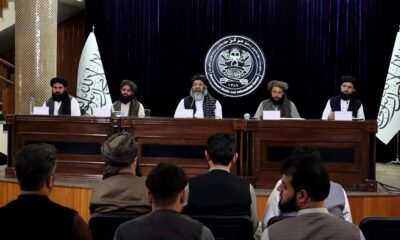Health
COVID-19 cases increase in Afghanistan: officials
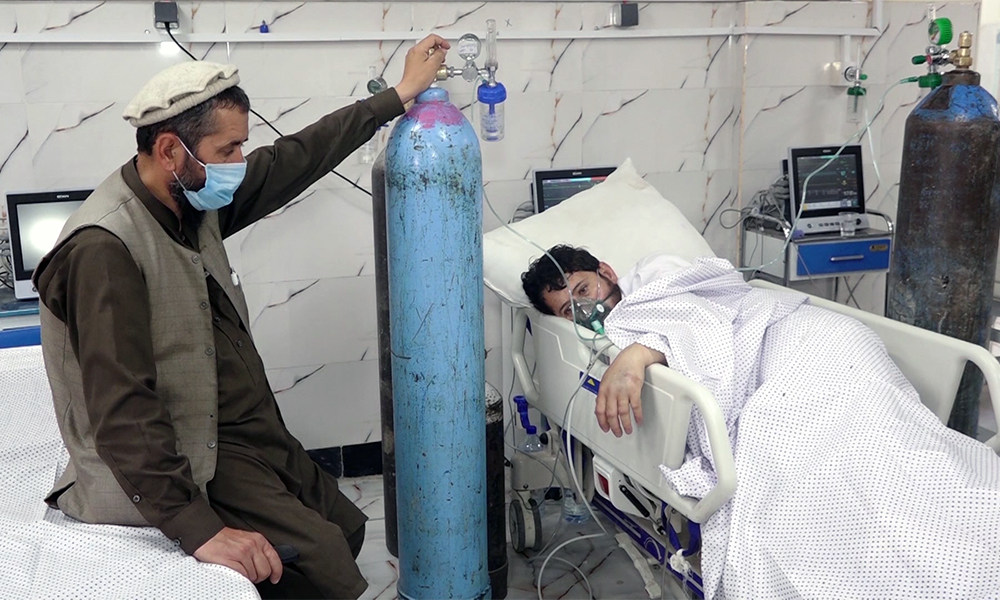
Afghanistan’s Ministry of Public Health (MoPH) said on Sunday that COVID-19 infections have increased across Afghanistan.
According to the MoPH, 429 COVID-19 cases were reported in the past 24 hours in the country.
MoPH officials raised concerns and said that the Afghan health sector is not able to detect the Omicron variant of COVID-19.
“Positive cases of COVID-19 surged recently. Symptoms of the cases [show] they are likely the new variant; we don’t know [whether it is Omicron or not], because we don’t have [test] kits. Compatriots should be careful,” said Dr Javed Hazher, spokesman for the MoPH.
Employees of the Afghan-Japan hospital which is allocated to treat Coronavirus patients said that they have not received their salaries for many months.
“Most of the cases are Omicron… We don’t have machines to detect Omicron cases, we also don’t have necessary kits,” said Hashmat Faizi, one hospital official.
Afghan patients and their relatives meanwhile are concerned about the lack of drugs and medical equipment in hospitals.
“Our patient had [Coronavirus] symptoms, we transferred him here. It is not clear yet whether he is infected by Coronavirus or not,” said Nasar, a relative of one patient.
“Our patient had been admitted here for a long time. We don’t have a good place to stay here, our problems should be reduced,” said Namat Gull, another relative.
Despite the increase in COVID cases across Afghanistan, people continue to ignore advice to wear face masks in public nor do they stick to social distancing regulations.
Advertisements in the media about measures to take to avoid contracting the virus have also stopped.
Health
Japanese charity Peshawar-Kai to resume leprosy treatment in Afghanistan
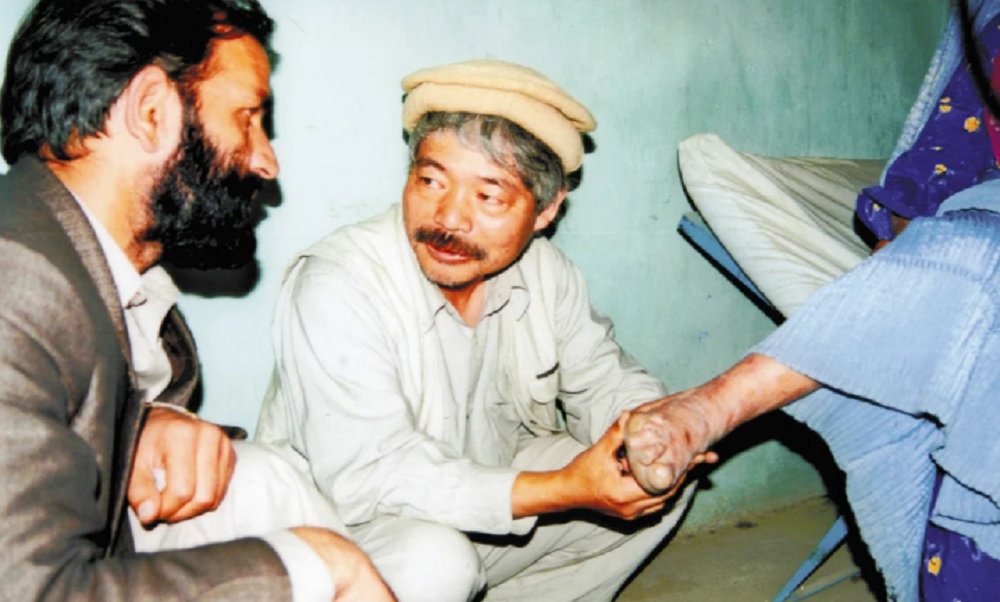
Peshawar-Kai, a Japanese aid organization, has announced that it will resume leprosy treatment in Afghanistan after around 15 years.
The charity will treat leprosy patients in memory of its former head Tetsu Nakamura, Japan’s Yomiuri Shimbun newspaper reported.
The NGO will begin its leprosy treatment program in Afghanistan this year.
It will treat patients in areas such as Nangarhar province by providing medicines, training staff and sending mobile treatment teams.
Leprosy, also known as Hansen disease, is a chronic infectious disease caused mainly by a type of bacteria called Mycobacterium leprae. The disease affects the skin, the peripheral nerves, the mucosa of the upper respiratory tract and the eyes.
Nakamura started treated leprosy patients in Pakistan in the 1980s and then began extensive activities, including the construction of water supply canals in Afghanistan.
The Japanese aid worker was killed in an armed attack in Jalalabad in December 2019.
Health
WHO confirms second Polio case in Afghanistan
The Islamic Emirate of Afghanistan’s Public Health Ministry has not yet commented.
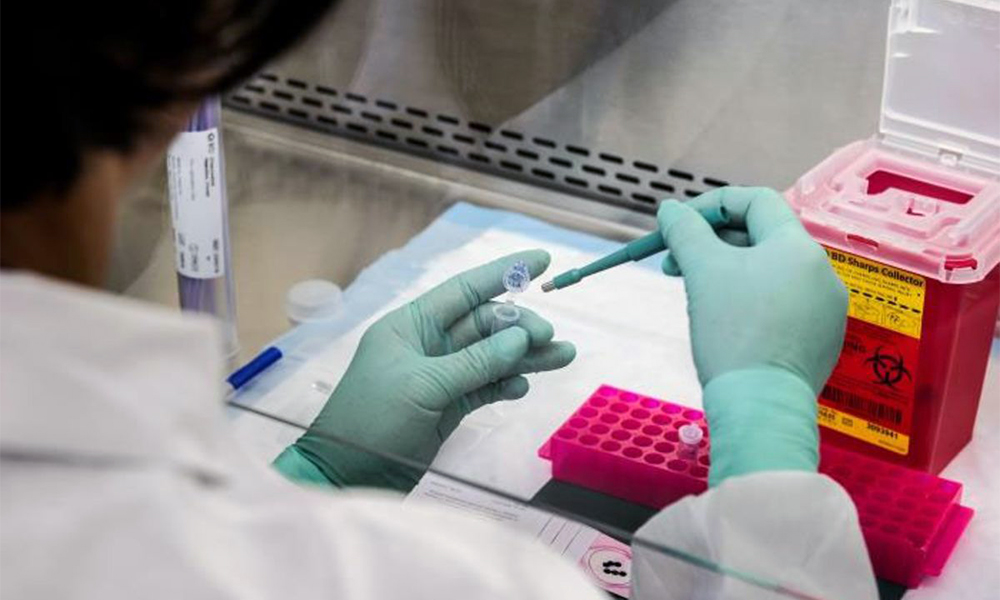
The World Health Organization (WHO) has confirmed the second case of polio in Afghanistan for the year 2025.
The case was identified in March in Helmand province.
This follows the first reported case in the Bala Murghab district of Badghis province, where a five-year-old girl was diagnosed with the virus.
Additionally, 18 environmental samples testing positive for the polio virus have been reported in provinces including Kandahar, Helmand, Kabul, Laghman, Nangarhar, and Zabul.
Afghanistan and Pakistan remain the only countries where polio has not been eradicated.
Polio is a viral disease for which there is no cure, and vaccination is the only way to protect children from it.
The Islamic Emirate of Afghanistan’s Public Health Ministry has not yet commented.
Health
Afghanistan strengthens healthcare system through collaborations with UNDP and UNFPA
Among those who Jalali met with were Stephen Rodriques, UNDP representative to Afghanistan, and Koffi Kwabena Asante, the UNFPA representative to Afghanistan.

In a series of high-level meetings Mawlawi Noor Jalal Jalali, Minister of Public Health of the Islamic Emirate of Afghanistan (IEA), has engaged with key international partners in a bid to bolster Afghanistan’s healthcare infrastructure.
Among those who Jalali met with were Stephen Rodriques, United Nations Development Programme’s (UNDP) representative to Afghanistan, and Koffi Kwabena Asante, the United Nations Population Fund (UNFPA) representative to Afghanistan.
Discussions between them highlighted the importance of collaborative efforts to address the country’s most pressing health challenges and ensure long-term, sustainable improvements.
The first meeting with Rodriques focused on the deployment of solar energy solutions to power healthcare centers across Afghanistan, particularly in remote and underserved areas.
Both parties explored the criteria for selecting appropriate sites for these solar-powered initiatives, underscoring the critical role of renewable energy in enhancing healthcare access.
The dialogue also covered integrated approaches to combat endemic diseases such as malaria, tuberculosis, and HIV/AIDS.
Jalali emphasized the importance of effective disease control, which, he noted, requires precise coordination and operational transparency to ensure impactful service delivery.
In response, Rodriques reaffirmed UNDP’s commitment to maintaining transparency and accountability in its interventions, pledging continued support for strengthening Afghanistan’s healthcare system.
The second round of discussions with UNFPA representatives Koffi Kwabena Asante and Andrew Saberton revolved around revitalizing the Afghan health sector, securing sustained financial support, and optimizing aid management.
Jalali stressed the need for a strategic overhaul of resource allocation to optimize international assistance and align efforts with national health priorities.
The discussions also delved into transitioning mobile health teams into permanent centers to expand healthcare access, as well as enhancing service delivery in line with the ministry’s health policy.
Jalali reiterated the importance of transparency in resource management to ensure the efficacy and sustainability of healthcare services.
Saberton commended the Afghan government’s commitment to these principles and assured that UNFPA would continue to provide vital resources to improve health outcomes in Afghanistan.
Both meetings highlighted the shared vision of fostering greater transparency, accountability, and long-term sustainability in Afghanistan’s healthcare system.
Through strategic collaborations with UNDP and UNFPA, Jalali aims to drive impactful reforms that will improve healthcare access and outcomes across the country.
The commitment of both organizations to supporting Afghanistan’s healthcare sector underscores the importance of international partnerships in tackling complex health challenges and ensuring the well-being of the Afghan people.
-

 Regional5 days ago
Regional5 days agoAt least 26 civilians killed in Indian strikes on Pakistan: Islamabad
-

 Science & Technology5 days ago
Science & Technology5 days agoSkype ends operations after 22 years of service
-

 Latest News5 days ago
Latest News5 days agoIslamic Emirate of Afghanistan ‘concerned’ over rising tensions between Pakistan and India
-
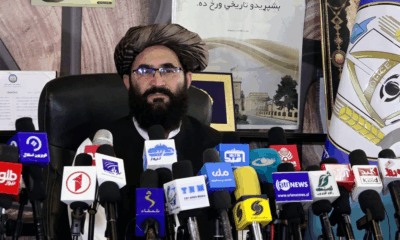
 Latest News5 days ago
Latest News5 days agoPassport Directorate earns nearly 13 billion AFN in one year
-

 World5 days ago
World5 days agoMacron to meet Syrian president on Wednesday, expected to discuss security
-

 Health5 days ago
Health5 days agoWHO confirms second Polio case in Afghanistan
-

 Regional4 days ago
Regional4 days agoIndia dismisses report of Pakistan downing jets as “disinformation”
-

 Latest News5 days ago
Latest News5 days agoUNAMA seeks over $400 million to support returnees to Afghanistan in 2025






